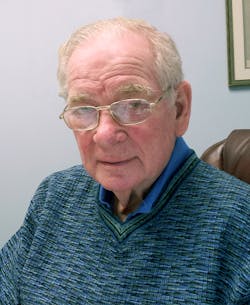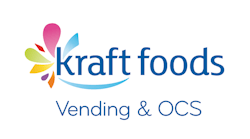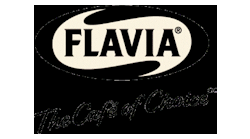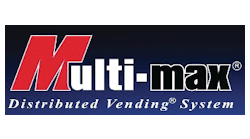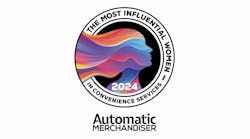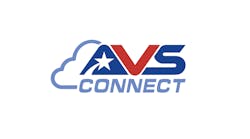Multi-max of San Diego, Calif. manufactures smart vending machines used in mid-sized offices and factories throughout the Western Hemisphere, the Pacific Rim, Asia and the U.K. These software-driven units forecast inventories and track the buying habits of individual employees using their company-issued debit cards. Founded in 1995, Multi-max sells its machines to vending operators. It also owns and operates Corporate Refreshments Services, a refreshment services operator serving over a thousand machines.
The sophisticated software in Multi-max equipment also protects the machines against product or cash theft, giving the company a competitive edge in Mexico, Central and South America where vending machine break-in is commonplace among low-income workers. That’s why Coca-Cola Bottling Co. of Mexico and other large south-of-the-border firms installed thousands of Multi-max machines.
In his initial 28-year career as a software developer, Mark Miller, president and CEO, had virtually no contact with or direct knowledge of the vending machine industry. That ended in 2002, when he was hired as an outside contractor to write software for a new generation of machines.
“Being an industry outsider gave me a distinct advantage,” Miller said, “I was able to think outside the box because I wasn’t married to existing vending machine technology.” Two years later he did join the industry by becoming an operator and by 2008 owned 400 machines. Today, his personal holdings now number 750 machines. It was obvious that the CEO thought enough of the company to become a stockholder as well, and now holds a sizeable stake of company equity - though not majority ownership. Miller does retain controlling interest of its Corporate Refreshments Services subsidiary.
However, even with the introduction of Miller’s new software, it wasn’t clear sailing. “When we got to the manufacturing stage of our new machines, our assembly costs were indeed lower and performance was greatly improved, but delivery problems persisted,” he said. “This was due to our limited leverage with our circuit board assembly contractor who understandably put larger-volume customers at the head of the line. The only way this issue could have been avoided was to tie-up $200,000 of working capital to retain a year’s worth of assembled board inventory. For that kind of money, we thought we could buy the equipment to assemble boards in-house. And that’s exactly what we did.”
Manncorp equipment was selected, “because that company, based in suburban Philadelphia, Pa., and San Diego, came in with a turnkey line consisting of an automatic stencil printer, a pick-and-place, reflow oven and wave solder machine – all for much less than what other guys were asking for their pick-and-place machines alone.”
“The benefits of our move to in-house automated surface mount printed circuit board assembly were dramatic and proved Manncorp’s contention that any OEM can and should do it because the savings are just too great to ignore,” Miller said. “Not only did we reduce our final board costs by 75 percent, we speeded our manufacturing cycle from six months down to just three or four weeks. Our added labor consists of just one new employee. With our latest-generation products, below-market costs and as-promised deliveries, we soon became a major source for vending machines – especially in Mexico, which until 2008 accounted for almost 80 percent of our sales.
The recent recession took an enormous toll on vending machine sales and the products they dispense. At the peak of the downturn, Multi-max endured heavy losses, especially in Mexico which was hard hit by business closings -- not only due to the economy, but to a major swine flu epidemic and devaluation of the peso. Was it time to throw in the towel? “No way!” was Miller’s response. What justified his optimism are significant upticks within the past two years from growing U.S. sales and exports to The U.K., Japan. Canada, South Africa and smaller countries like Guatemala and Columbia. Yes, even Mexico is coming back strong.
Miller attributed Multi-max’s success its specialization in the 20- to 100-person office route, which he sees as an underserved market – too small for the giants and too big for the mom-and-pop operators. Today, there are over 5,000 Multi-max units in the U.S. and an almost equal number outside of this country. Fewer than 200 companies own these machines. This relatively small group of entrepreneurs share and communicate their common interests and experiences.
Miller recently ansered a series of questions to provide a closer look at the reasons behind his company’s resilience and growth.
Q: Why did you build your own machines rather than buy existing equipment?
A: Multi-max is focused on the mid-size office vending market for snacks and beverages. We built our own equipment because there was and still is no profitable way to service this market due to the lack of sophisticated controls in yesterday’s and today’s vending machines. DEX was a step in the right direction, but does not go far enough to meet what we perceive to be the needs of this market. Multi-max uses a cassette load design that dramatically increases service efficiency, lowers stale loss, and allows merchandising the machine in response to market demand. None of these features were available in previous generations of vending equipment and still aren’t. Yet the cost factor between traditional machines and ours is almost nil. In addition, Multi-max recognized the need to stretch beyond just snacks and soda vending to items like single cup coffee. Today, we have the only working solution for vending Keurig K-Cups using our VM816. This machine has been tested and approved by Keurig. In addition to our existing pod vendor there are solutions for Flavia by Mars, and Tassimo by Kraft coming soon.
Q: The improvements you made to your equipment, (i.e. card reading, inventory control, etc.): weren’t these features available in existing machines?
A: The improvements we made to Multi-max machines were not and still are not available in any vending machines since many of our improvements are patented.
Q: Do Multi-Max Machines have DEX (supply chain and inventory management software) and MDB (file format) and remote machine management?
A: Yes, Multi-max machine have all of these features. In addition to DEX, we include transaction-level data recording allowing for things like time-of-day pricing which DEX cannot handle. Our VM813 control station uses MDB as well as being the only unit that features a full-size changer and still fits on a counter and under cabinets (typically 18 inches) in a kitchen setup. Our Multi-max Pro software is a huge part of the overall system and interacts with all routing, inventory management, machine management and data management needs.
Q: Are there other selling points of Multi-Max Machines?
A: They make money for operators in locations no other machines can. Isn't that the only selling point worth discussing? The vending business is getting more competitive. The costs of everything from corn to gasoline and labor are rising. At the same time there is a trend towards companies having many small offices as opposed to fewer large ones. Multi-max machines are uniquely positioned to take advantage of all these factors.
Q: What role did printed circuit board (PCB) design play in these improvements?
A: We had to design and build our own PCB because we believe the future of vending is the same as it is for all electronics: it must be compatible with your PC. These days people expect that everything they buy can be plugged in, synced, downloaded, upgraded, and or controlled by their PC. Why should our vending machines be any different? Our custom circuit boards include USB for communication as well as data storage, more flexibility with upgrades and the horsepower to do more than just run the vending units.
Q: Would it be possible to retrofit these assets into existing machines – by replacing circuitry or other minor modifications? Or does it require a whole new redesign?
A: Multi-max has recently started looking at ways to retrofit our technology to legacy machines. While this is not one of our main areas of business right now, as we grow, it will be getting more and more attention.
Q: Could you provide chronological details of Multi-max logistics?
A: All new locations receive debit cards preloaded with our welcoming gift of $1 per employee. This promotion typically delivers about an 80 percent cost-recovery rate. Multi-max machines are serviced every eight days on average. A paper order is provided for each location, enabling a warehouse cassette packer to know which machine gets which products merely by matching their bar codes. All our locations have two to four machines and our drivers make 20 to 30 stops per day. On average, each account requires six minutes of packing at the warehouse and 10 minutes for in-the-field service, excluding travel time.
